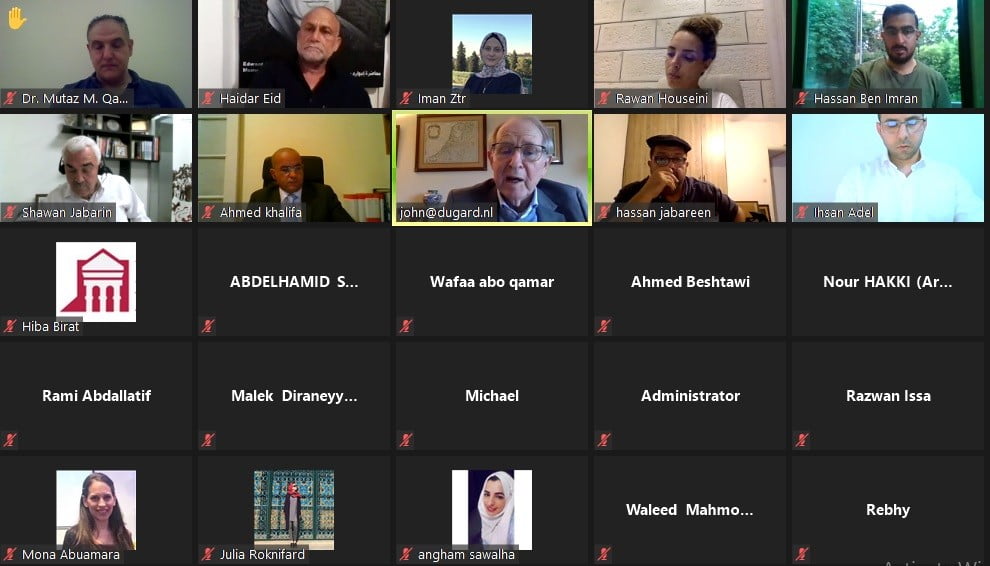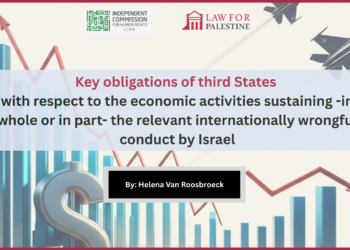Special Session: International law experts discuss ways to benefit from South Africa’s experience in ending apartheid to confront Israeli apartheid
UK – July 3, 2020: As part of its monthly Jurists for Palestine Forum sessions, Law for Palestine organized a special meeting titled: “The Apartheid system: What Palestine Can Learn from South Africa?” The panel discussion was attended by three experts in international law: South African professor and former judge at the International Court of Justice and contributor to the bill of rights for post-apartheid South African constitution, Professor John Dugard, General-Director of Al-Haq Organization for Human Rights, Professor Shawan Jabarin, and founder and Chair of Adalah Center for Arab Minority Rights in Israel, Dr. Hassan Jabareen.
The panel discussion was held on Wednesday evening, June 30, 2021, via the Zoom App. The guests discussed with 30 academics, legal specialists and researchers from several countries around the world the lessons that Palestine can learn from the experience of South Africa after as the Israeli regime is being increasingly recognized as an apartheid regime by several international human rights organizations and experts, including Richard Falk’s and Virginia Tilley’s ESCWA-commissioned Apartheid report, followed by other reports by Human Rights Watch and B’Tselem. The meeting was moderated by Dr. Ahmad Khalifah, Assistant Professor of International Criminal Law at Ain Shams University and IHL expert, and followed by more than 800 members of the Jurist for Palestine Forum from around the world.
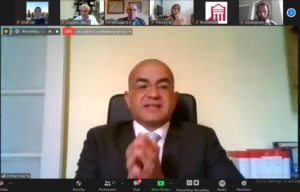
The panel speakers concluded that the path to confronting Israel’s regime of apartheid is more difficult than the path taken in South Africa, due to the broad international and US support for Israel, and the fear of accusations of anti-Semitism, as well as European countries’ sense of guilt towards the Jews because of the history of the Holocaust, which makes their opposition to Israeli practices hard to sustain. Moreover, the meeting’s guests stressed the importance of applying international law and its tools to undermine international support for Israel and to counter the stigmatization of opposition to the Israeli apartheid policy and its conflation with anti-Semitism.
Professor Dugard stresses that national unity and the application of international law are crucial instruments in the fight against apartheid
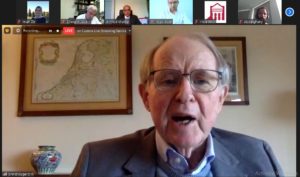
In his intervention, Professor John Dugard praised the Palestinian government’s adoption of international law to confront Israeli practices and to resort to the International Criminal Court (ICC). He also emphasized the importance of this path and other instruments of international law and international commissions in order to confront Israel’s apartheid given the wide international support for it. Prof. Dugard also underlined the necessity of national unity among all groups of the Palestinian people, and considered national unity a key factor in the success of South Africa in its just fight against then South African apartheid.
Shawan Jabarin: Our goal in confronting apartheid is not to attain equal rights on par with settlers, but also to end settlements and illegal crimes in Palestine.

The director of Al-Haq Organization, Shawan Jabarin, pointed out that we, as Palestinians and supporters of Palestinians’ right to self-determination, cannot deal with the crime of apartheid as a separate one from the rest of the violations of international humanitarian law committed by Israel, especially settlement and colonization of the Palestinian territories. Jabarin said that the Palestinian situation is more complicated than that of South Africa, as the Palestinians are not aiming to attain equal rights with illegal settlers, but rather to see the confrontation of apartheid as one of the essential tools to confront the illegal Zionist occupation of the Palestinian territories.
Dr. Hasan Jabareen: Apartheid against the Palestinians inside Israel lies in the fact that the only dominant racial group is that of Jewish Israelis.
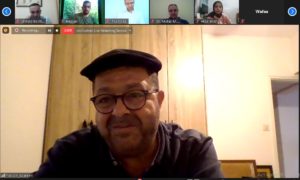
Dr. Hasan brought to the discussion allegations that the Palestinians inside the Green Line do not suffer from an apartheid regime and the situation cannot be compared with the South African regime – in light of Palestinians’ participation in daily life inside Israel and their ability to work in educational and health institutions, the judiciary and their participation in national elections, as well as the absence of a restriction of movement against Palestinians in Israeli neighborhoods, or the existence of roads specific to one race but not the other.
Dr. Hasan responded to these allegations by asking: Who is the dominant race in granting or denying basic rights to Palestinians inside Israel? For example, who controls the granting or withdrawal of citizenship rights? Or land ownership? Or controlling the majority in the Israeli Knesset? And others… The answer to these questions leads us to the institutionalization of the apartheid regime within the Green Line, since the only controllers of all matters pertaining to basic life issues of Palestinians are Jews, not the Palestinians.
The attendees also raised several issues, including: the role of armed resistance in the war against apartheid and how it can be implemented within international law, the definition of discrimination on the basis of race with the aim of raising the issue of apartheid for consideration before the International Criminal Court, and the possibility of imposing international sanctions and boycotts against the Israeli apartheid regime and other interventions which the guests discussed with the attendees during the panel discussion within a rich and structured dialogue.
It is noteworthy that this seminar comes within the activities of Jurists for Palestine Forum of the Law for Palestine, which includes holding a monthly online session that includes international experts with the participation of researchers, students and interested people from different countries of the world to discuss topics and developments related to international law and Palestine, in addition to effective networking between lawyers interested in Palestine from all over the world.
To attend the upcoming monthly meetings within the Legal Forum for Palestine, you can register in the forum here
Click on the link below to watch the full session.

